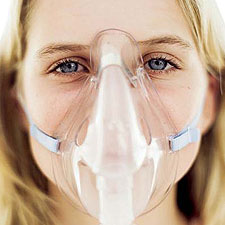 Sometimes asthma can be difficult to diagnose since its symptoms can be quite similar to some other conditions of the respiratory system. Inaccurate diagnoses are a concern if a proper maintenance program is to be followed. A diagnosis for asthma can be determined by a doctor if the patient shows some obvious signs. One would be if the patient has improvement if given asthma medication and there is improvement. Another would be if a patient was exposed to some sort of irritant that would trigger an asthma attack.
Sometimes asthma can be difficult to diagnose since its symptoms can be quite similar to some other conditions of the respiratory system. Inaccurate diagnoses are a concern if a proper maintenance program is to be followed. A diagnosis for asthma can be determined by a doctor if the patient shows some obvious signs. One would be if the patient has improvement if given asthma medication and there is improvement. Another would be if a patient was exposed to some sort of irritant that would trigger an asthma attack.
If a good management program is to work well, not only does the patient have to be involved, so does the family and the doctors. The management program depends on being well educated on asthma and its control, avoiding anything that might bring on an attack, having and using the proper medication, proper maintenance by the patient and follow-up by the doctors of all functions, and finally making sure that the patient has plenty of physical activity.
 There are other kinds of asthma management in addition to the traditional route of taking medication. Some use acupuncture, herbal and natural remedies, chiropractic, or Chinese medicines. There is not enough medical research done to date to either give support or to reject the use of these alternative methods of treatment.
There are other kinds of asthma management in addition to the traditional route of taking medication. Some use acupuncture, herbal and natural remedies, chiropractic, or Chinese medicines. There is not enough medical research done to date to either give support or to reject the use of these alternative methods of treatment.
The management of the asthma is greatly influenced by the efforts of the patient and their family to take control of the situation. By avoiding any situations that may trigger an attack, having a good relationship with medical professionals, creating and carrying out a good self management program and making good use of all medial services that are available, the patient can enjoy a good quality of life.
Public recognition of asthma as the chronic health problem that it is will help to ensure that policies to create air quality standards in the workplace, schools, and any other public place can help to combine with a patients efforts to improve the quality and the maintenance of life for the asthma sufferer. Voluntary efforts alone have proven not to be successful therefore legislation has been necessary to help reduce exposure to certain contaminants such as cigarette smoke and environmental contaminants both inside and outside.
 Research indicates that more needs to be done to help to improve prevention and management of asthma. The research that is being done on the effectiveness of measures taken to prevent the onset of asthma seems to be lacking. The combined efforts of many will help to direct strategies towards reducing contaminants at work, reducing exposure to smoke by children both before and after birth, and by encouraging breastfeeding and the slow introduction of solids to infants. Other strategies include reducing the exposure to children of things such as house dust mites, certain insects and moulds by ensuring regular cleaning and providing adequate ventilation. By decreasing the exposure of children who may have some genetic predisposition to asthma to any known irritants, this will also help in the asthma management plan the patients has developed.
Research indicates that more needs to be done to help to improve prevention and management of asthma. The research that is being done on the effectiveness of measures taken to prevent the onset of asthma seems to be lacking. The combined efforts of many will help to direct strategies towards reducing contaminants at work, reducing exposure to smoke by children both before and after birth, and by encouraging breastfeeding and the slow introduction of solids to infants. Other strategies include reducing the exposure to children of things such as house dust mites, certain insects and moulds by ensuring regular cleaning and providing adequate ventilation. By decreasing the exposure of children who may have some genetic predisposition to asthma to any known irritants, this will also help in the asthma management plan the patients has developed.
The healthcare system needs to play a larger role in improving the management program of the asthma sufferer by increasing their knowledge of clinical practice guidelines. The increased use of some long term anti inflammatory medications that are inhaled, will decrease the patients need to be so dependant on reliever medications. The proper education of those who are diagnosed with asthma through the enhancement of healthcare services will help to ensure access to programs available to the sufferer and their families. This education could help with funding and access to appropriately trained individuals educated in the control and maintenance of asthma.
